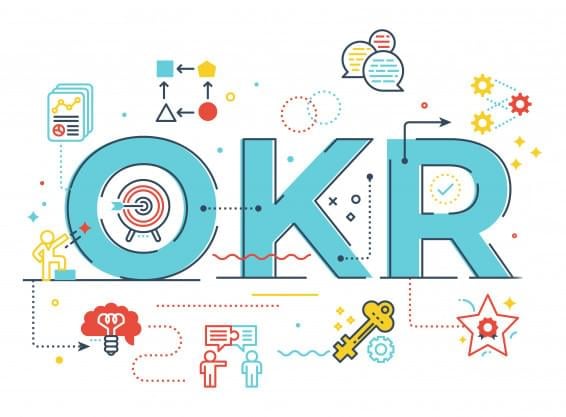

Success. One simple word that represents the ultimate goal of every single person on Earth. Everyone wants to have a taste of success in various aspects: career pathways, human relationships, even financial freedom. Boss success starts with establishing firm foundations with the people around you, as you work your way together to achieve your business goal. You expressed to your people your determination to work together as a team to achieve the business goal, unfortunately, after countless times, you still failed to make your voice heard. And you don’t like to use “avoid Failure” in time of Pandemic COVID-19. You and your people just do not see eye-to-eye, who you going to let go first?! Do you know that they are too focused on their personal agenda as their goals, thus ignoring your emphasis on the business goal as a whole? This is where you need to have one question in mind to be clear of: how exactly could you measure success in a time of crisis? Think about it. In a normal day-to-day work life, we all work for money… yes, money! This is THE ABSOLUTE TOOL to measure success and avoid failure now.
When you start up a business, you only have one thing in mind, to make money. Imagine being in a business but fail to generate more income – do you realise this is a sin being in business?! And the economic crisis will make things worst for your team!! Business go bankrupt is what you don’t want It to happen. No plans, no goals, no achievements. All nothing but a waste of effort. You NEED to make money. Your people depend on you to help them make money too, to ultimately avoid failure as their biggest success, to be free of Virus. This is you and your people’s major goal and each of you must have a clear image on how you should work your way out of the economic crisis.

The achievement of individual goals will consequently lead to the achievement of business goals. Being an entrepreneur, you need to be able to help lead your people in the achievement of their personal goals, as your stairway to your business goals’ success. Take baby steps, achieve smaller goals because unconsciously, you are actually doing yourself a favour to achieve your business goal. You make it easier for your people, you break it down into smaller goals rather than giving them a shock of a lifetime by dumping a whole huge goal to be achieved straight away. Look at this as if you are in a sport, competing with others. Your success is measured by winning. But when you fail to win, it does not mean you lose. You receive constructive feedback, for you to come up strong and be better in the future. So, you are competing with other businesses and MUST set a goal. You are responsible for influencing your people, you are responsible for helping them thrive as well. You and your people are responsible for winning together.
Patrick is not your usual yachting champion. When he is not involved in competitions, Patrick runs a business under his own brand that sells boat accessories. From production, to marketing, to selling, Patrick handles everything like a one-man show. Patrick has all the know-hows of handling sales, he knows what needs to be done to expand the market. One day, he decided to hire a few sales staff to help him out in his business since sales demands have been increasing over time. He set them a target to be attained, which was quite overwhelming.

Demand was growing day by day, and problems began to appear one after another. There was a problem in the production department, as the orders had to be delayed due to the bursting demands in Patrick’s boat accessories. There were disputes between departments, communication was poor, disagreements were high. Patrick realised a problem here: the personal and departmental objectives of his people were not aligned with one another.
Patrick worked his way to identify each department’s objectives. So the sales team’s objective was to sell two million accessories in quantity, whereas the operations and production department’s biggest concern was placed on quality and productivity. It was clear that each department’s objectives were far different! Each department wanted to pursue their own goals – CHAOS!

Therefore, Patrick decided to conduct inhouse training of OKR, where he hoped the OKR expert would help mitigate this issue. It seemed promising in the beginning, but then Patrick realised there was another problem. They were all merely learning theoretical knowledge regarding OKR from the Trainer, but they were not taught HOW TO put these into practice. Realising this, Patrick was still determined to fix the problem and he hired a CFO with an OKR background instead. The CFO was there to guide Patrick and his people, he was determined in helping them align their efforts using OKR. The CFO believes that without the alignment of efforts, it is just the same as leaving four strong men rowing a boat together – they may be strong, but without togetherness in efforts, they would still lose anyway.

Success and goals may sound like the same thing, but in nature, they are actually different. Firstly, success is defined as a state, or a value which is usually stated ambiguously. You can state it for yourself, or even for other people, everyone will say they want success but hardly define what they really want. Evaluating success is so broad that there is no finite measurement for it. Unlike success, goals, also known as an outcome, would be stated specifically and they are measurable in nature. Goals tend to be more personal to an individual, and therefore, you determine your goal for yourself and not for others.
So how do you list out what you want in success? You use affirmations. As for goals, you tend to write intended outcomes as a form of measuring your goal. With affirmations identified, success could be attained anytime; you can even attain it in the moment you identify it, as long as you work your way towards it with no specified steps. In other words, time is not involved. Goals are the total opposite of success, whereby it is time-bound and you would need steps clearly outlined to achieve it. Usually in the long-term, the outcome of a goal is more impactful towards an individual or an organisation.

Well-defined goals are S.M.A.R.T (Specific, Measureable, Achievable, Relevant, Time-bound), and they play a significant role in setting out clear objectives and ways to achieve them.

Goals can be measured using Objectives and Key Results (OKR), a management strategy used to set goals within an organisation. OKR plays an essential role in connecting all levels and individuals in an organisation, whereby it requires everyone to work together as one. It makes everyone clear of what they are being expected of, and which direction they should move towards. The idea came about the 1950s by Peter Drucker, who established the Management by Objectives (MBO) system, usd to set objectives for every individual in an organisation. MBO emphasises laying out expected contributions by an individual and their department, in order to help others attain their objectives. Andy Grove, the CEO of Intel in the 1970s then restructured this MBO system to make it easier to understand, answering two main questions: (1) Where do I want to go?; and (2) How will I pace myself to get there? Ever since then, the OKR system was born.
The simplicity in coming out with an OKR makes it almost unbelievable how it helps making everything so clear cut. Let’s refresh one more time on what OKR is. To make it easily understandable, just remember that O represents the business objective, and KR is the key result or most important outcome. On a usual basis, 1O will be linked to 3KRs. To help you in constructing a well-defined OKR, an OKR Elicitation which consists of a simple series of questions, will help you set your goals clearer.
OKR Elicitation
1. State Objective in a positive manner
🔑What specifically do you want in the context of ______?
🔸Lead people to the context of their position, department, team, strategy.
2. Is it congruent to mission and align with strategy? (s.m.a.R.t)
🔑Why is it important to you? To the company/team?
🔸Lead people to relate their priorities to the company/team
🔸Back to Step 1 if not aligned, relevant, and congruent
3. Specify present situation
🔑Where are you now?
🔸Be sure it is associated
🔸Lead people to move out of their comfort zone, future pace for subsequent questions and answers.
4. Specify outcome (S.m.a.r.t)
🔑What will you see, hear, or feel when you have it? What else? (Total 3)
🔸“As of now”
🔸Make it compelling
🔸Insert questions about Future as well. Be sure the future picture is dissociated.
🔸Lead people to challenge difficulties and aim for higher results
5. Specify evidence procedure for 3 above (s.M.a.r.T)
🔑How will you know when you have it?
🔸Lead people to access its visual representation and of the most “real” feeling.
🔑How is it measured?
🔸Lead people to quantify/number it, or established a ratio in %
🔑When will you know you have it?
🔸Lead people to be time bound on daily, weekly, bi-weekly, or quarterly basis.
6. Specify achievable procedure for 3 above (s.m.A.r.t)
🔑What do you have now, and what do you need to get to your outcome?
🔑Have you ever had, or done this before?
🔑Do you know anyone who has done it before?
🔑Can you act as if you have it?
🔸Make it achievable. If it isn’t, identify who or what can help. Be resourceful.
🔸Lead people to make it clear, understandable, and easy.
7. C.U.T. OKR
🔑CAPTURE answers into 3 Key Results, write into OKR note
🔑USE the OKR note and just do it!
🔑TEACH what you have learnt from success, or give feedback from failure
🔑Back to Step 3

OKR works better when it is used together with Key Performance Indicators (KPI). I have been using both OKR and KPI to motivate my people, and it works wonders!
Looking at a glance, the OKR Elicitation may seem to be a little too personal to individuals rather than for use in businesses. Can you really still use it for teams? Based on my experience, my answer is an absolute yes! In the beginning it does seem to be personal, but when you identify each of your people’s personal OKR as well as your business’ OKR, you will realise how these two actually link with one another. It helps you make your efforts to achieve the business goals even stronger, you will eventually find a way to use their personal OKR to lead them in attaining your business goal at the same time. So yes, it is useful for teams and the entire company as a whole. Have your Head of Department to elicit the OKR for individual teams. It is a whole chain of reaction, beginning from the boss with 1O:3KR, he will pass it on to the Managers to execute efforts that turn the Boss’ KRs into O. From this, subordinates will follow on to turn the Manager’s KRs into Os. In this way, your entire organisation is working together to achieve its business objectives.
How about Patrick? Well, with the help from the CFO, the departments in Patrick’s business began to have their goals and objectives aligned using the OKR system. The success of the OKR team building proved significant results when Patrick’s business finally had demands to be exported to Australia! After 6 months, his business finally went international. Lesser chaos between departments, Patrick is content with the outcome of the OKR implementation. With OKR, he now knows he is capable of leading his people to work towards his business goals. Success isn’t just about what you accomplish in your life; it’s about what you inspire others to do.
